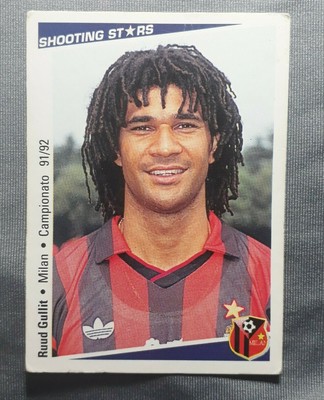
Introduction
Ruud Gullit, a name synonymous with excellence in football, continues to resonate within the sport long after his retirement. Known for his skills as a versatile attacking player, Gullit was instrumental in not only elevating his teams but also in influencing the way football is played today. His significance extends beyond the pitch, where he has become a cultural icon, setting the stage for future generations of players and coaching styles.
Rise to Fame
Born on September 1, 1962, in Amsterdam, Netherlands, Gullit began his professional career at FC Haarlem before moving to the renowned club PSV Eindhoven. His stellar performance at PSV helped him secure a position in the Dutch national team, for which he made his debut in 1981. Gullit played a pivotal role during the 1988 UEFA European Championship, where he helped the Netherlands claim their first major international title. His leadership and charisma on the field inspired his teammates, leading to a legacy that would be revered.
Club Achievements
In his club career, Gullit made significant contributions to several teams, most notably AC Milan where he played from 1987 to 1993. During his time at AC Milan, he won numerous domestic and international trophies, including three Serie A titles and two UEFA Champions League titles. His partnership with Marco van Basten and Franco Baresi formed an iconic trio that took European football by storm. Gullit was awarded the Ballon d’Or in 1987, recognizing him as the best footballer in Europe.
Transition to Coach
Post-retirement, Gullit transitioned to coaching, applying his extensive knowledge of the game. He took managerial positions in various leagues, including overseeing the Netherlands national team and coaching clubs such as Chelsea FC. His time at Chelsea in 1996-1998 marked a significant period for the club, highlighting his dedication to nurturing talent and strategy. Gullit also ventured into media, becoming a pundit and television personality, further enhancing his public profile.
Impact and Legacy
Ruud Gullit’s impact goes beyond statistics; he has influenced a generation of players with his unique playing style. His versatility as a midfielder and forward has redefined positions in football, making him a pioneer for players who defy traditional roles. In addition, his flamboyant hairstyle and charisma made him a cultural icon during the 1980s and 1990s. Gullit’s contributions to the sport have paved the way for future athletes to express themselves, both on and off the pitch.
Conclusion
The legacy of Ruud Gullit remains influential in the world of football. As fans continue to celebrate his achievements, it is essential to recognize his role as a catalyst for change in the sport. His journey embodies the essence of football — passion, determination, and artistry. With ongoing contributions to football as a coach and analyst, Gullit’s journey is far from over, leaving an indelible mark that will resonate through the annals of football history.



